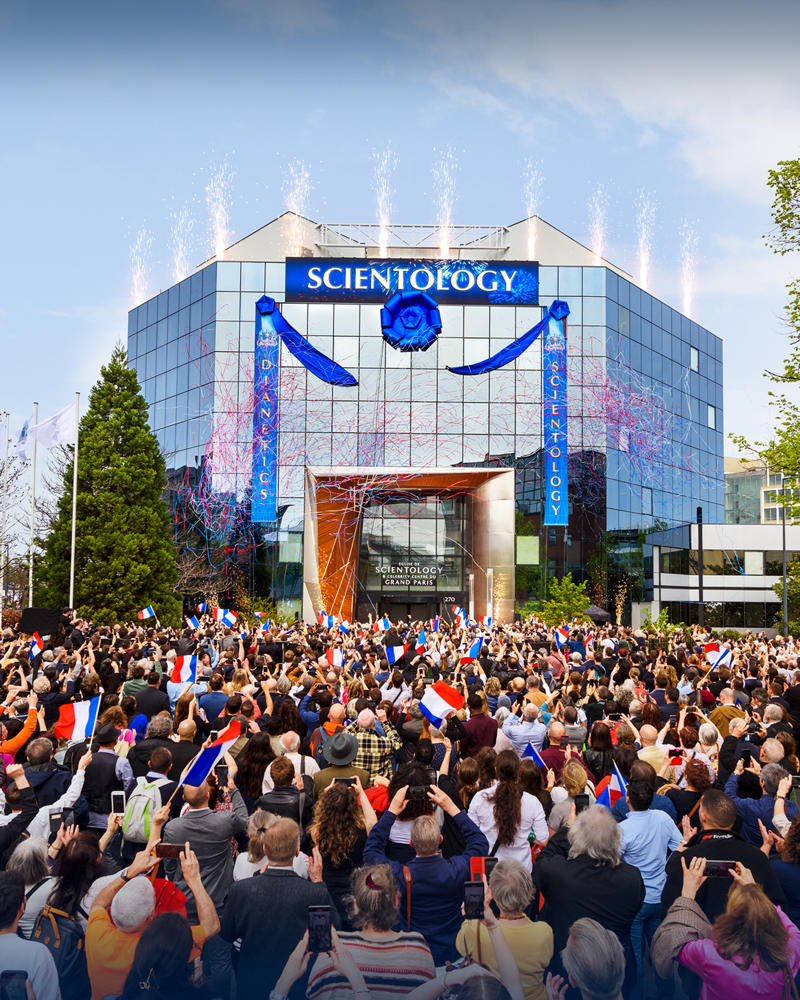Scientology in Pop Culture: Representations and Misunderstandings
Scientology in Pop Culture: Representations and Misunderstandings
Blog Article
Disproving Myths: Separating Reality From Fiction Concerning Scientology

Origins of Scientology
The beginnings of Scientology trace back to the mid-20th century when L. Ron Hubbard, a science fiction writer, started the idea system in the 1950s. Hubbard's advancement of Scientology originated from his earlier self-help system called Dianetics, which he presented in the 1940s - Scientology. The shift from Dianetics to Scientology noted a shift towards a much more detailed spiritual ideology that integrated facets of psychology, Eastern spiritual practices, and Hubbard's own concepts on human existence
Hubbard's exploration right into the human mind and spirit resulted in the creation of Scientology as a religious beliefs centered around the concept of spiritual enlightenment and self-improvement via a process called auditing. Auditing, a kind of spiritual counseling, intends to assist individuals conquer emotional and mental obstacles, recognized as engrams, that hinder personal growth and awareness.
As Hubbard's trainings gained popularity, Scientology progressed into a global movement with a substantial following. In spite of objections and conflicts bordering its techniques and beliefs, Scientology proceeds to attract followers looking for spiritual gratification and personal growth.
Core Beliefs and Practices

Another basic element of Scientology is the idea of the Thetan, the spiritual essence of a person that transcends the physique. Followers aim to understand and enhance their link to the Thetan via numerous techniques such as research training courses and filtration routines.
The Church of Scientology also positions a strong focus on the value of personal duty and the idea that individuals have the power to shape their very own destinies. Through adherence to ethical standards and the pursuit of self-improvement, specialists of Scientology make every effort to accomplish better levels of happiness, success, and spiritual fulfillment.
Controversies and Objections
In the middle of Scientology's core ideas and methods exists a landscape noted by conflicts and objections that have actually triggered intense dispute and scrutiny. One of the major criticisms leveled against Scientology is its secretive nature and the alleged exploitation of its participants. If they attempt to leave, previous participants have spoken out regarding sensation pressured to donate big sums of cash to the Church and encountering rough consequences. Additionally, Scientology's standing as a tax-exempt religious company in some nations has actually been a factor of contention, with doubters saying that its methods are more similar to a service than a religious beliefs. Scientology.
An additional area of conflict surrounds the Church's therapy of critics and dissenters. Records have actually arised of harassment, intimidation, and lawful dangers routed at those that talk out against Scientology. This has raised issues regarding freedom of expression and the organization's dedication to transparency and responsibility.
While Scientology has actually vehemently rejected many of these claims, the conflicts and objections bordering the Church remain to sustain public hesitation and examination.
Scientology's Influence in Society
Scientology's influence expands to the world of mental health, where its sights on psychiatry and psychology have click to read stimulated arguments within the clinical area. In the realm of entertainment, Scientology's association with prominent celebrities has brought focus to the religion, both favorably and adversely. The participation of renowned numbers in Scientology has, in some cases, served to popularize the religious beliefs, while in others, it has actually attracted objection and increased questions concerning the church's practices and ideas.
Debunking Common Misconceptions
The Church of Scientology is legitimately recognized as a religion in several nations, consisting of the United States, where it has tax-exempt standing. Like various other faiths, Scientology provides spiritual assistance and techniques for its participants.
One more false impression is that Scientology compels its members to cut ties with their households. In truth, the church stresses the relevance of family relationships and Bonuses encourages participants to maintain healthy links with their liked ones.

Final Thought
In final thought, it is necessary to different reality from fiction when reviewing Scientology. By examining its beginnings, core beliefs, conflicts, and influence in culture, we can disprove typical false impressions surrounding this religion. It is critical to approach the subject with a essential and objective frame of mind in order to comprehend Scientology accurately and without bias.
Rooted in a structure of spiritual enlightenment and individual development, Scientology's core beliefs and techniques encompass a diverse variety of concepts and routines. Central to Scientology is the idea that human beings are immortal spiritual beings that have actually neglected their true nature. The participation of renowned numbers in Scientology has, in some cases, offered to promote the religious beliefs, while in others, it has actually attracted criticism and elevated concerns regarding the church's methods and beliefs.
The Church of Scientology is legally identified as a religion in numerous countries, consisting of the United States, where it has tax-exempt view it standing. Like other religions, Scientology offers spiritual guidance and methods for its members.
Report this page